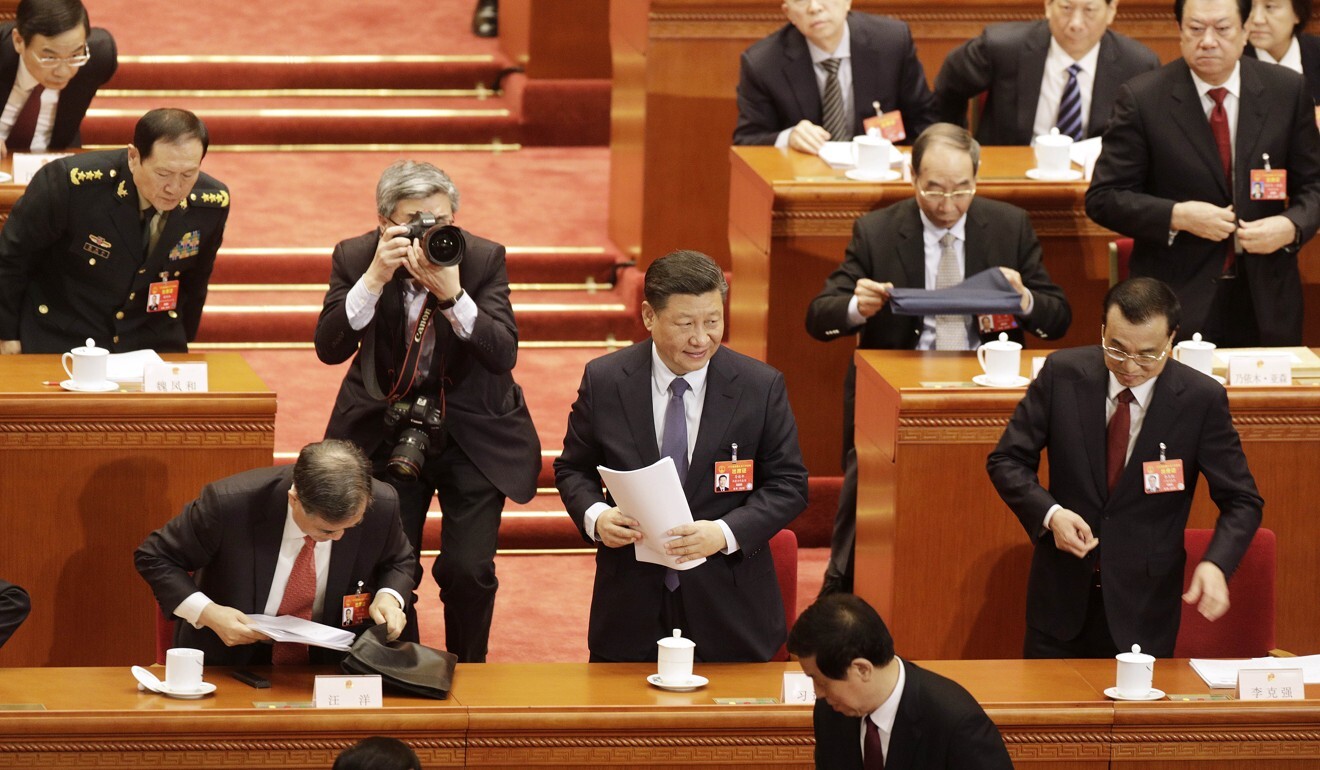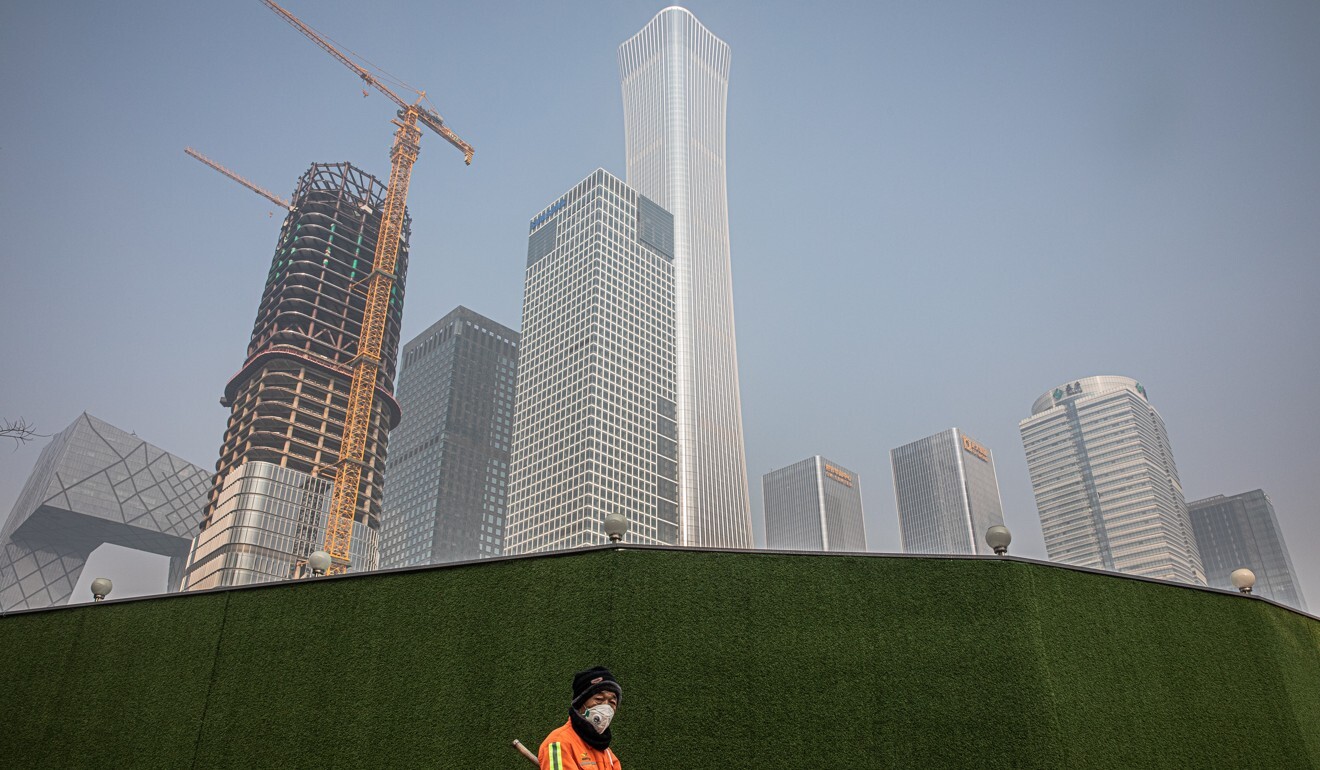
Coronavirus: going ahead with China’s ‘two sessions’ as normal would be foolhardy
- In a little more than two weeks, thousands of delegates are scheduled to attend China’s most important annual political events – the NPC and CPPCC
- If China’s best case scenario is that the virus will go away by April, pressing on with the political events in March would send a message that politics is above people. Far better to delay.
There is no easy answer as they are caught between a rock and a hard place. On the one hand, officials encouraged by a recent fall in new infections hope to restart production as soon as possible to mitigate the impact on the world’s second-largest economy and bring life back to some semblance of normality. On the other hand, they fear that having people return to work too soon would trigger a second wave of new cases.
Coronavirus: what Xi fears most is Chinese turning on the Communist Party

Of course, all this hangs on how quickly the Chinese government can contain the spread of the highly contagious virus, which by Friday had already killed more than 1,300 people and infected more than 60,000.
In recent days, China’s top health experts including Zhong Nanshan, famed for his role in combating the Sars epidemic in 2002-2003, have taken a cautiously optimistic tone, saying in media interviews and social media posts that the outbreak may peak later this month and be over by April.
Such suspicions will only have grown with the announcement on Wednesday night that Hubei had reported a sharp increase of 14,840 new confirmed cases, almost 10 times the number reported a day earlier, and a death toll of 242, more than double that of the day before.
Chinese officials attributed the spike to the introduction of a new methodology in how the cases are counted and reported in Hubei.
Some analysts said the introduction of the new counting standards was a good sign as it finally revealed the true picture of the epidemic in the province and meant that local officials had started to include those people who were infected but were unable to receive any treatment from the overwhelmed hospitals, which would help identify and isolate more sources of contagion.
Still, China’s medical experts have not fully grasped how the virus is transmitted between humans and a vaccine is still months away.
As the most effective preventive measure is to keep people at home and avoid crowds, reports that about 160 million people would have returned to work in major cities between February 11 and 18 could aggravate the crisis.

The six-day Lunar New Year holiday, which was originally scheduled to end on January 30, had helped matters and the Chinese government subsequently extended it to February 2 but, for most businesses in China, last Monday was supposed to be the first day back at work.
But in reality the central government in Beijing and the local authorities appear at odds over the best time to allow factories and businesses to resume operations.
Over the past week, through state media reports and press briefings, central government ministries including the National Development and Reform Commission have been pushing the local authorities to help factories and businesses to restart production.
The Chinese leadership’s stance seems to have shifted from the sole priority of combating the spread of the virus over the past three weeks to a two-front strategy which includes back-to-work policies.
One of Beijing’s biggest worries is that any longer delay could result in a massive lay-off of mostly migrant workers from small and medium-sized enterprises, particularly those in the tourism and hospitality industries such as hotels and restaurants, and those labour-intensive firms involved in processing goods for export.
The coronavirus threatens the Chinese Communist Party’s grip on power
A statement released on Wednesday night after a cabinet meeting presided over by Premier Li Keqiang urged officials to pay high-level attention to employment and avoid massive lay-offs.
However, media reports have indicated that the local authorities in many provinces have ignored the pleas from the central government and continued to impose tough measures by keeping residents at home and keeping outsiders from coming in, as well as using administrative measures to block businesses from resuming operations. In many areas, highway exits are sealed. Migrant workers have particularly been affected as they are prevented from returning to their rented flats and are told to quarantine themselves for 14 days. Already, some entrepreneurs have taken to social media to complain that local officials merely paid lip service to the central government’s back-to-work policies.
The chaos is set to continue until the inflection point of the outbreak, which remains elusive in the short term.
With a little more than two weeks to go, whether China should delay the “Two Sessions” of the NPC and CPPCC has become a matter of intense discussion behind closed doors.
Chinese officials have publicly kept mum on the issue but are believed to have started to make contingency plans to delay the meetings.
The latest reports have suggested that the authorities still intend to push ahead with preparations to go ahead with the original schedule.
The NPC deputies in Hong Kong have reportedly received messages that they will be scheduled to fly to Beijing on a chartered plane on March 2.
Every March, more than 5,000 NPC/CPPCC delegates converge in Beijing for about 10 days to discuss the matters of the country, occupying the Great Hall of the People and several dozen hotels in the city. If the support staff are counted, the total number could easily reach more than 10,000.
At a time when the government has already banned much smaller public gatherings, it would be foolhardy to go ahead with such a large gathering for 10 days, even if the outbreak lessens by early March.
Cancellation is out of the question as China’s constitution mandates that the NPC must hold its annual session every year.
Already, provinces including Sichuan and Yunnan and municipal cities including Ningbo and Qingdao have announced a delay to their respective local “Two Sessions”. Protocol has it that local governments from the provincial to the township levels should hold their own people’s congress and CPPCC meetings before their representatives travel to Beijing for the national ones.
To be sure, a delay will come with political costs, not least because this would be the first time since 1995 when the authorities fixed the March schedule for the two sessions.
There is no doubt that the authorities intend the two sessions to project confidence and unity at a time of crisis.
But until the Chinese government declares a complete victory against what Xi has described as “the devil” virus, pushing ahead with the original schedule is unlikely to go down well with the public.
Back in early and mid-January, officials in Hubei and its capital Wuhan went ahead with their own provincial and city meetings, exuding positive energy about future development goals while ignoring the dangers of the virus outbreak already spreading in hospitals and communities. By the time those meetings were over, the virus outbreak was already out of control.
Under the current circumstances, delaying the national meetings would actually send a message that leaders put people’s lives and welfare above politics. ■
Wang Xiangwei is the former editor-in-chief of the South China Morning Post. He is now based in Beijing as editorial adviser to the paper

